All Stories
-
 Health & Medicine
Health & MedicineIf your kid hates broccoli, try, try again
Repeated exposure to foods may be the antidote to picky eating.
-
 Physics
PhysicsMeet Big Bird, highest-energy neutrino ever detected
Big Bird, the neutrino, struck the Antarctic ice with a record 2 million billion electron volts of energy.
-
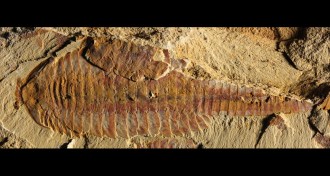 Paleontology
PaleontologyAncient crustacean had elaborate heart
The now-extinct Fuxianhuia protensa had a fancy cardiovascular system that sent blood to its limbs and organs, including its brain.
-
 Humans
HumansFather’s obesity linked to autism in children
A father-to-be’s body mass may be a greater risk factor for his child’s development of autism than the body mass of the mother.
-
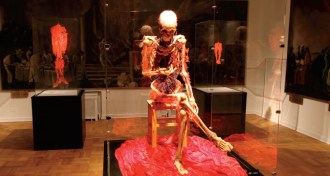 Health & Medicine
Health & MedicineSurgery museum holds wonders for the brave
Anatomical displays sit alongside art depicting medical history at the International Museum of Surgical Science.
By Sid Perkins -
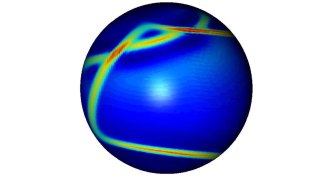 Earth
EarthTiny minerals may have shaped Earth’s first plate boundaries
Simulations link weakened rock minerals to the origin of plate tectonics on Earth.
By Naomi Lubick -
 Science & Society
Science & SocietyMillions of working mamas
It has been a long time since millions of American women working outside the home was big sociological news. Women are now 47 percent of the U.S. workforce.
-

-
 Earth
EarthScience can save lives, but only if society lets it
Society faces lots of problems that science can’t yet fix. But there are also plenty of cases in which scientists know enough to avert tragedy.
By Eva Emerson -
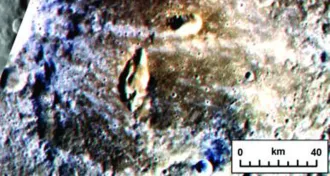 Planetary Science
Planetary ScienceMercury’s surface once exploded in volcanoes
Newly released images show ancient vents and ash scattered within craters on Mercury's surface.
-
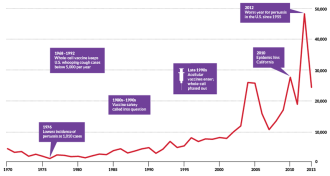 Health & Medicine
Health & MedicineWhooping cough bounces back
A new type of pertussis vaccine introduced in the late 1990s may have led to the return of a disease that was nearly eradicated 40 years ago. Public opposition to vaccination hasn’t helped matters.
By Nathan Seppa -
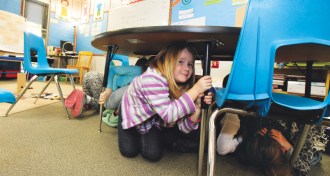 Earth
EarthBuying time when quakes hit
On the West Coast, geologists are developing an earthquake warning system that can provide seconds of notice before destructive shaking begins. The system could be ready before the next big quake hits.